Ethical and sustainable vintage-inspired clothing brand Palava are creating fabulous reusable face masks from left over fabrics. You can now get a vintage-inspired printed face mask to match your dress, what’s not to love?Sustainable vintage-inspired clothing brand Palava create non-seasonal styles in classic shapes using their unique prints and are active members of the ethical fashion movement.
Behind the colourful prints and joyful spirit of Palava lies a passion for sustainable vintage-inspired clothing, ethical manufacturing, the small team make conscious choices about their fabrics and production processes from start to finish. I caught up with Palava Owner and Designer Bryony to find out more.
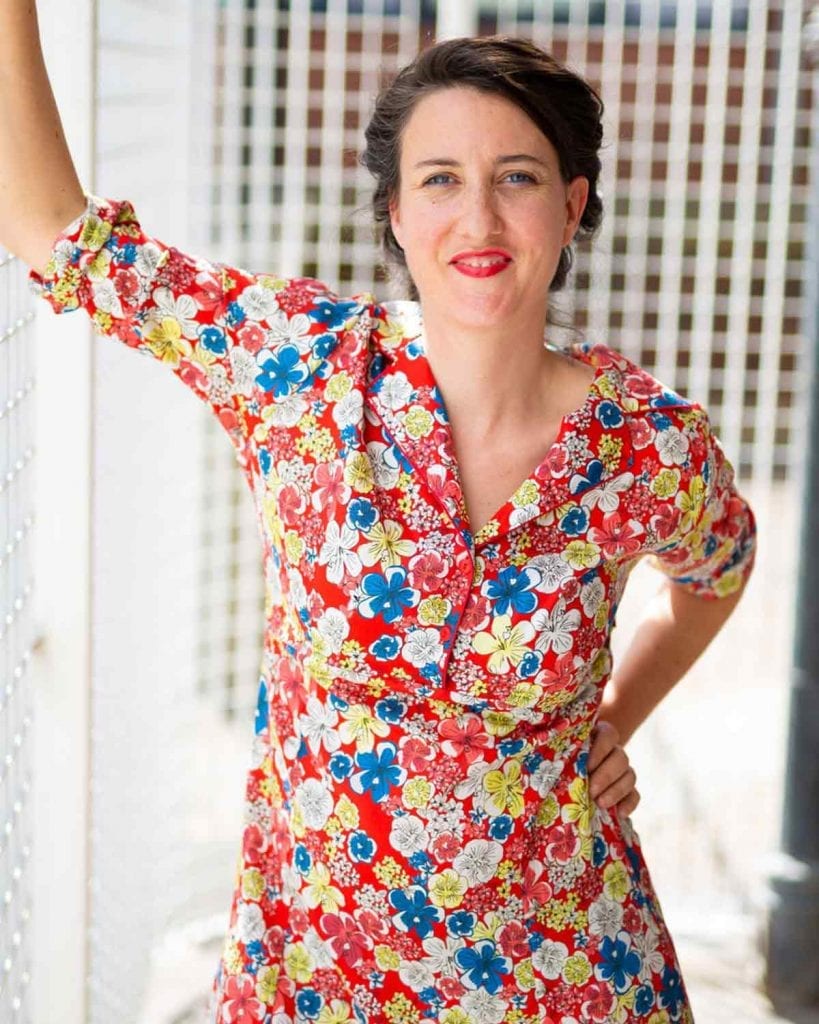
Q. Firstly of all, how have you been doing throughout the Coronavirus crisis? How’s business? tell us the good, bad and ugly…
Like many small independent businesses, this pandemic has given us a lot of uncertainty. We have had to close our London shop during lockdown and our small team of staff started working remotely from home, keeping in touch via Zoom meetings. Wholesale took a big hit as stockists around the world started cancelling their orders for our summer collection (as they, too, had to close their boutiques).
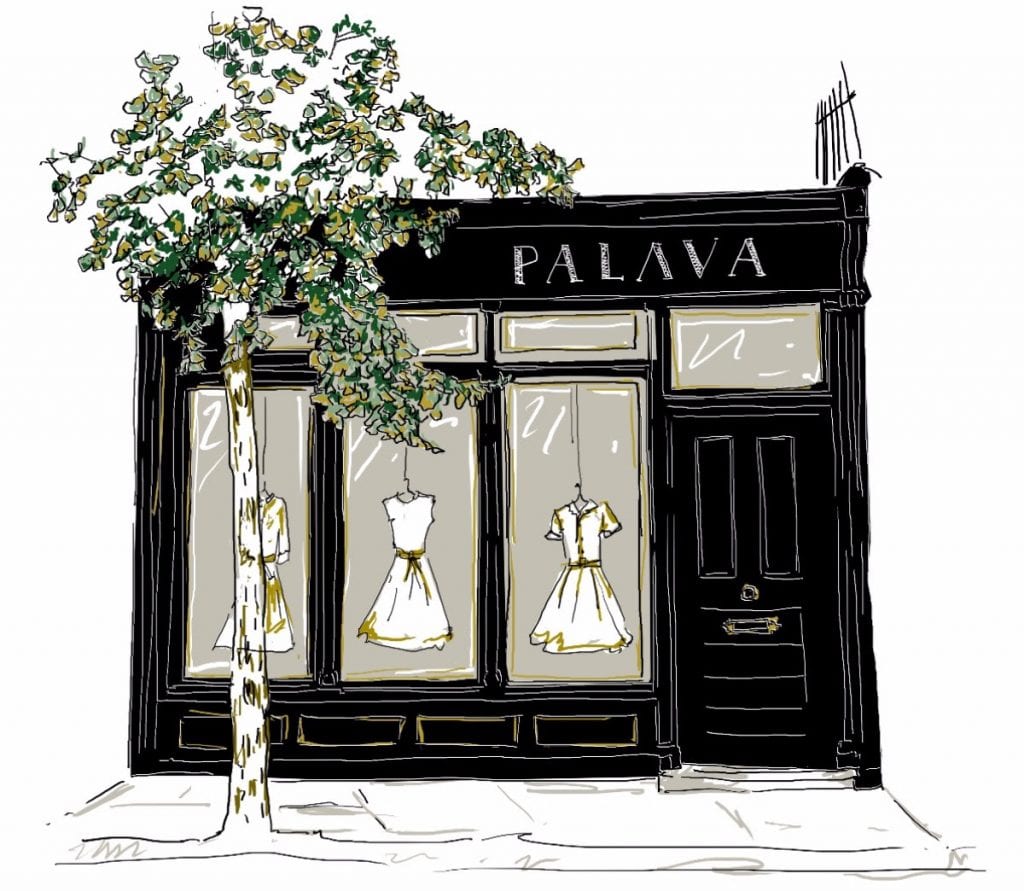
We had to re-focus our business to online retail sales and building a strong engagement and relationship with our customers through social media and newsletters. Thankfully, we’ve received lots of amazing support and encouraging feedback from customers, that has cheered us on and kept spirits high!
Sustainably Made Reusable Face Masks
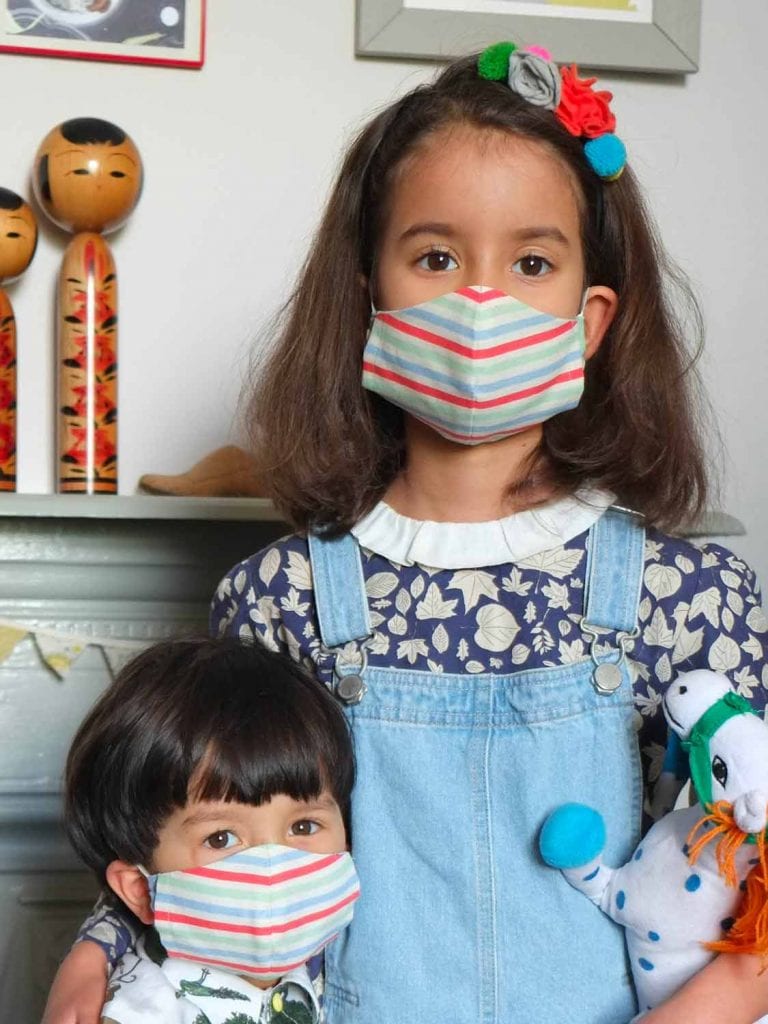
Since lockdown, we’ve also been making face masks. Demand for these has been huge and as we are only producing small batches at a time, we sell out very quickly. We donate £2 from every face mask sale to the food bank charity the Trussel Trust and as part of our zero waste philosophy, we made our masks using fabric scraps left over from our summer production run. We’ve also been trying to inspire the Palava community with creative projects throughout lockdown. We created a simple free mask pattern download and also have been making online crafting tutorials. So overall, it’s been an up and down journey. We were able to adapt and adjust because we are small and flexible and already had a strong online presence. Now we’re looking forward to re-opening our shop again in mid July!
On Designing Sustainable Vintage-Inspired Clothing
Q. You illustrate a lot of your own prints by hand, do you have an all-time favourite?
All of the prints that I make hold certain special memories. Each print collection reflects a different stage in my life and the different influences that I was experiencing at the time of making them. I feel a lot of nostalgia for my early prints. Palava was initially a children’s clothing brand and there was always a really strong story running through every border print that I made – almost like a picture book, running along the bottom of a dress. These designs will always be very special to me.
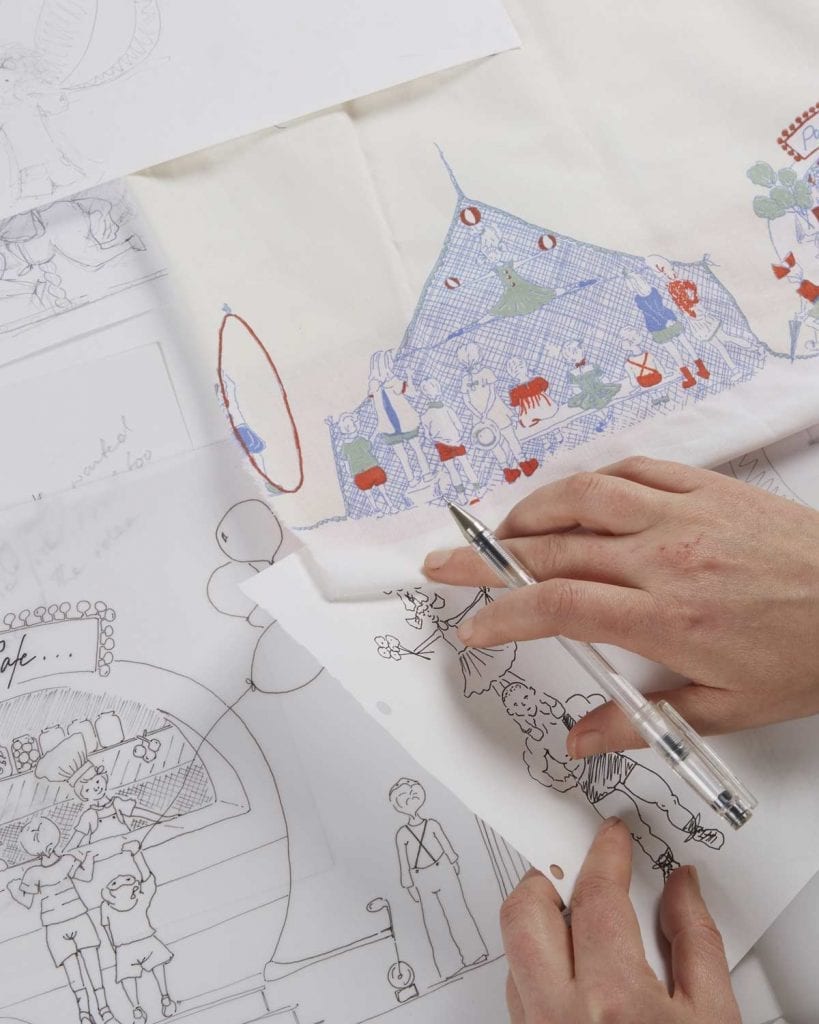
Nowadays, I’m really excited about exploring bolder shapes and colour. Our Bauhaus collection last year was a bit of a turning point for that and we’re continuing to develop this theme in our AW20 collection which will be launching in September.
Slow Fashion Production Process Explained
Q. Can you tell us a bit about your manufacturing process?
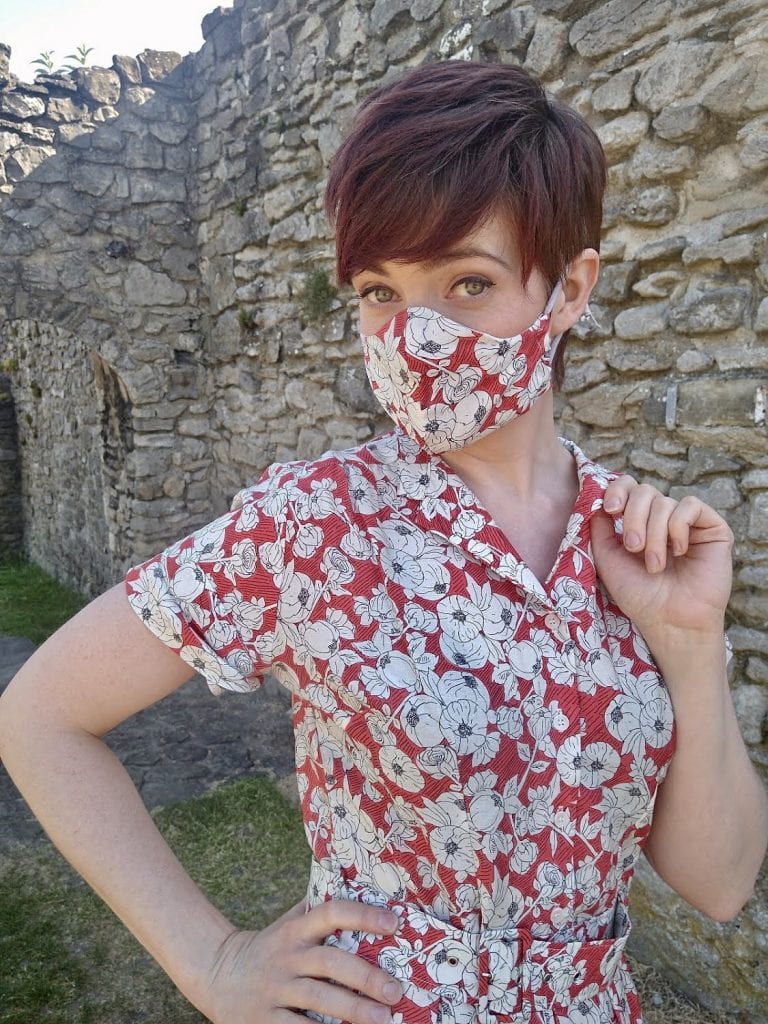
I start designing our collection a year in advance. The process is a lengthy one! Samples are made and the photoshoot is completed. We create a lookbook that goes out to our trade customers who then place pre-orders. Our fabric is woven especially for us in Turkey. It is also printed there too and makes its way over to our London factory. This journey takes around two weeks so is quite a slow process, but far more environmentally friendly than the alternative, which would be to fly the fabric over. All of our dresses, skirts, trousers, tops and coats are made in a small family-run London factory. We produce small runs of each of our designs – we sometimes make only two or three of a style in each size. Not only does this make each dress rather special but it also means that large amounts of ‘deadstock’ simply isn’t a thing for us.
The working conditions in our London factory are very good. It is a warm, comfortable and positive environment.
– Bryony, Palava Clothing on slow fashion manufacturing
Every member of staff gets the London living wage or better, and they have an hour’s lunch break. During the production process, our Production Manager, Leah goes to the London factory at least once a week. It’s important that any mistakes are spotted and put right quickly before they turn into bigger problems. Having a good rapport with the machinists helps a lot – they’re far more likely to come to you with a problem if you are a familiar and friendly face!
Our organic knitwear is made in Turkey – they are real experts over there. The organic cotton we use for our knits is grown and spun in Turkey too so they really know the material inside out. We produce our knitwear and embroidery in a small family run factory near Izmir, and I visit a couple of times a year to make sure all our standards in terms of working conditions, sustainability and knitwear quality are upheld.
Tips On How For Anybody Looking To Shop More Sustainably?
1. Pay attention to the fabrics – are they made sustainably?
Look for natural fibres. New materials like tencel (made from the pulp of eucalyptus trees) are incredibly environmentally sustainable – even more so than organic cotton. At Palava, we use linen cotton blends, organic cotton, tencel and pure linen to make our clothes – materials which wear and wash incredibly well and which are also 100% biodegradable.
We keep our carbon footprint to an absolute minimum at Palava. For our Molly cardigan, only 50 miles are covered between the sheep and the final knit!
2. Ask where your clothes are made and what happens with production waste.
We’re really conscious of waste on the cutting room floor. All of our Palava accessories are made from the left-over fabric after our dresses and skirts have been cut. Any scraps too small for our accessories go into our popular fabric bundles which get snapped up by crafters.
3. Buy quality over quantity.
The throwaway culture in fashion is so destructive to both the planet (and our pockets, too). If you buy one item that is made well using quality material, it will last so much longer. I have clothes that were made in the 1950s that are still really wearable today because they were made with care, using quality fabric – we aim to create clothes with the same longevity!
4. Be more questioning.
Time and again we see claims from clothing companies as to their ‘ethical’ credentials but when you really investigate, these claims are nothing but hot air and clever marketing. We’re fastidious about transparency at Palava. Sustainability is at our very heart and we are always happy to answer any questions about this side of our business. The more you read and talk to people, the more you learn and the easier it will be to know what you should be looking for.
Thoughts On The Future Of Fashion…
We are already seeing huge shifts in this direction and customers are really starting to take interest in this side of things – which wasn’t always the case. From a personal perspective, I’d like Palava to continue to secure its place as a company renowned for transparency and ethics. We are by no means perfect and we are always trying to educate ourselves in this area – but we are also incredibly proud of the steps that we, as a small business, have already made.
I hope and believe that sustainable and ethical production will become the norm for the fashion industry.
Palava Founder, Bryony on the future of the fashion industry
A special thank you to Bryony for sharing her story and giving us an insight into the inner workings of her sustainable vintage-inspired clothing business. If you’re on the look out for a reusable face mask, Palava have a selection of print options available, all made using scraps of material left over from their SS20 production. With every face mask purchase Palava are donating £2 to the food-bank charity the Trussel Trust.
Stay fabulous




